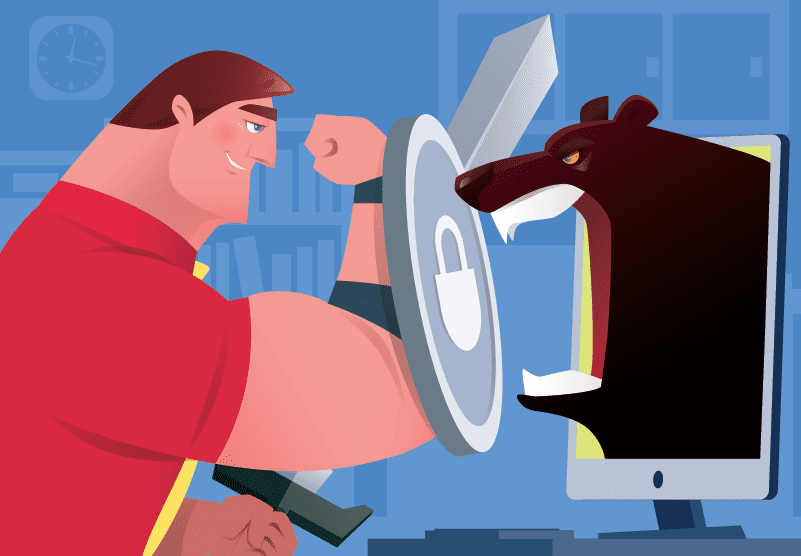
Do you know that regardless of how strong a firewall and an antivirus is, they are always inadequate to keep your data safe on your computers. Think about those thousands of audio and video files you have stockpiled over the years or the great chunk of your employees personal data you’ve amassed in your hard drive; a piece of art you’ve been working for years or your academic assignments that you have been piling up for annual evaluation- yes, we’re talking about those precious bits and bytes that are seemingly safe at your flash drive or hard drive, but extremely vulnerable in actual. As soon as they go out of your notice, they may fall directly into the hands of a digital thief.
Yeah, plenty of digital thieves are loose in the wild planning and strategizing their ways to break into the privacy of your data. The examples are everywhere- the data attached in your emails can pass through a number of servers before hitting its intended destination. Think about a number of ways the email can be intercepted before reaching its recipient.

Similarly, if you are carrying your sensitive data in a USB flash drive or a portable data storage device, losing or getting it stolen can expose you to so many painful risks and their consequences. In the same way, data stored in your files and folder stored in your system can be extremely vulnerable to hacking attacks and easily reachable by these digital thieves if you are not being too concerned about the confidentiality of your data.
So to ensure the privacy of your data, what you need to understand is this encryption and what is the advantage of using it to protecting your privacy.
The word ‘Encryption’ may sound weird and too nerdy but do you know that you use this technology all the times these days. When you use your computer, login to accounts on the internet or email your friends, you are constantly encrypting and decrypting your data without ever noticing it. This is how the encryption works – You write something that makes sense and pass it on to a special program called ‘encryption program’. The encryption program returns your information into gibberish and creates a special ‘Key’. Now this gibberish is only understandable by the encryption program. When this gibberish is sent to another end, the encryption program converts it back to normal with use of the ‘Key’ for the recipient to understand. The advantage is simple; all the data transferred during the transfer becomes useless if eavesdropped.
Technically, there are all sorts of encryption programs that use different types of encryption algorithms. Now what the heck is algorithm? It is simply a method that can be either sophisticated or very basic for the conversion of your information into gibberish. The more gibberish your data becomes after encryption, the more powerful encryption is what you get.
That’s reasonable, of course if your gibberish is very basic, it’s easy for a hacker to understand or bypass it. Currently, there is something called ‘Advanced Encryption Standard or AES’ method of encryption which uses 256-bit encryption. It’s some technical lingo to denote power.It is used in the US Military and currently the strongest encryption method or algorithm.
Apart from the standard of encryption used, another huge factor determining the strength of the encrypted data is by use of strong ‘Key’, otherwise known as a password. If your password is hard for others to guess, you are much better off. Your password could be made stronger if it is comprised of just about all types of characters, capital letters, small letters, digits or special characters. On the other hand, if your password is weak, like your data of birth, your last name or a word from English Dictionary; you are risking a lot.
By a good mix of good encryption algorithm and password, you can achieve encryption of high levels. The encryption achieved using AES encryption and a good password is virtually impossible to break. The amount of time required to crack even a 128-bit AES key, much less a 256-bit key, is estimated to be 149 trillion (thousand-billion) years – a time longer than our universe has existed.
Products that make use of AES Encryption in securing data are:
1. Folder Lock
2. PGP
3. TrueCrypt
Most Important Things You Do To Protect Your Security Online
1. Use strong passwords: Use a combination of upper and lower case letters, numbers, and symbols to create a secure password. Avoid using the same password for multiple accounts.
2. Keep your software up to date: Always make sure that your operating system, web browsers, and other software are up to date with the latest security patches.
3. Use two-factor authentication: Whenever possible, use two-factor authentication to protect your online accounts. This will require you to enter a code sent to your phone or email address in addition to your password.
4. Be aware of phishing scams: Be wary of emails and websites that ask for personal information or financial data.
5. Use a VPN: Use a virtual private network (VPN) to encrypt your internet traffic and protect your data when using public Wi-Fi.
6. Be careful what you share online: Be mindful of what you post on social media, as it can be used to target you with malicious attacks.
7. Use a secure browser: Use a secure browser such as Google Chrome or Mozilla Firefox to protect your data while browsing the web.
8. Use a firewall: Use a firewall to protect your network from malicious attacks.
9. Back up your data: Regularly back up your data to an external hard drive or cloud storage service to ensure you have a copy if anything goes wrong.
